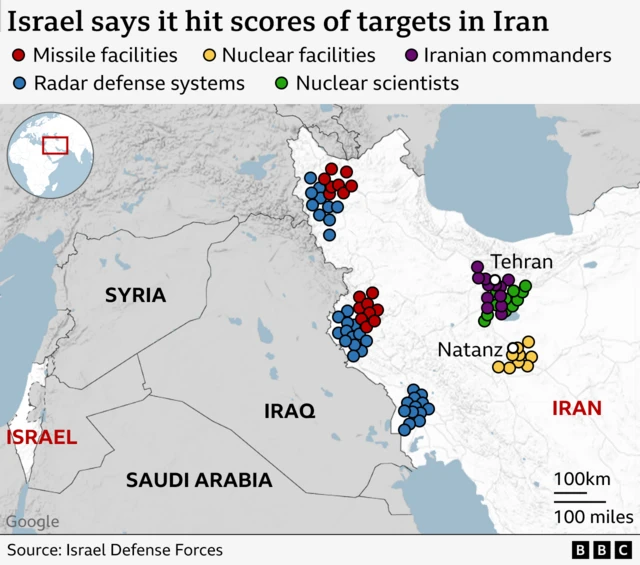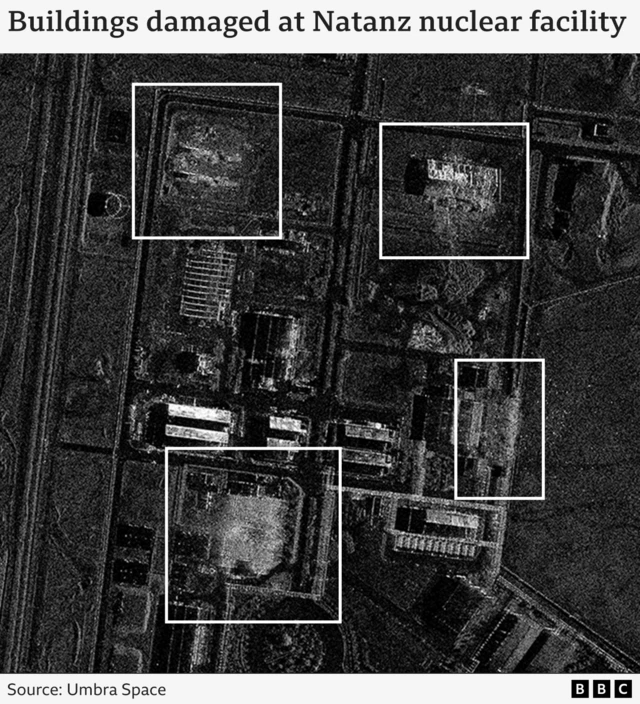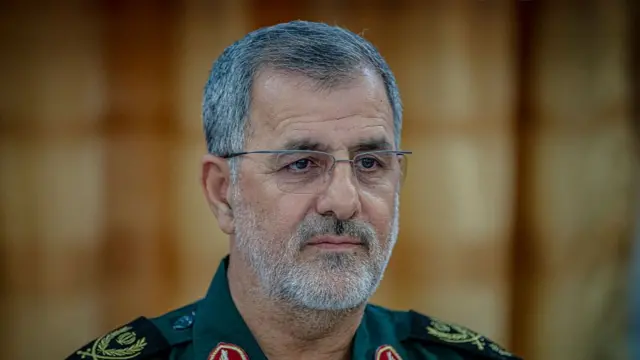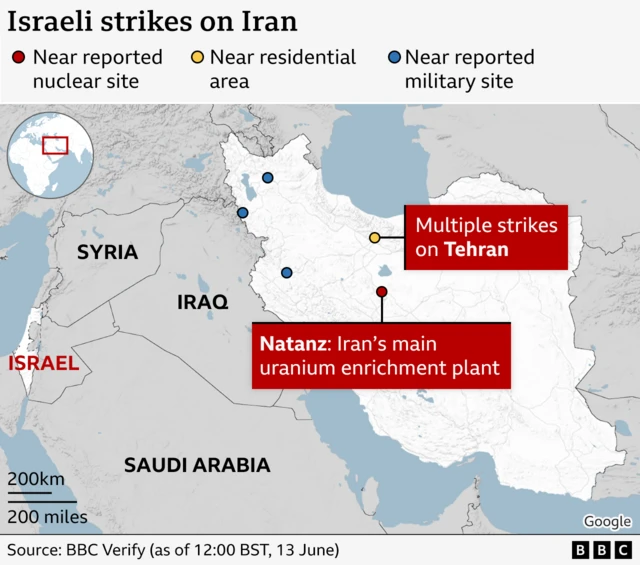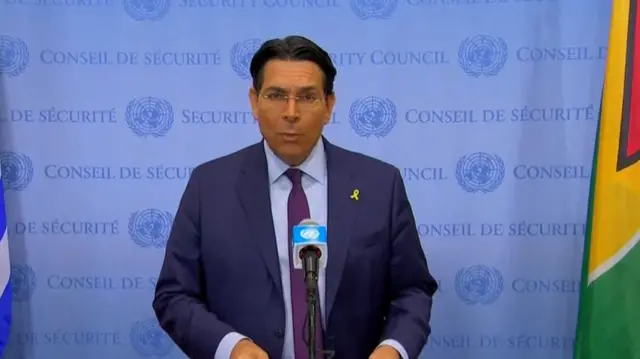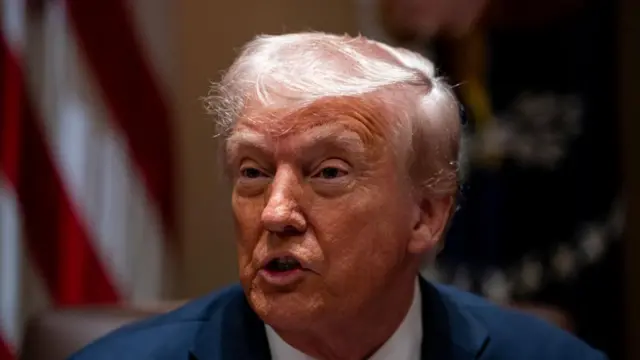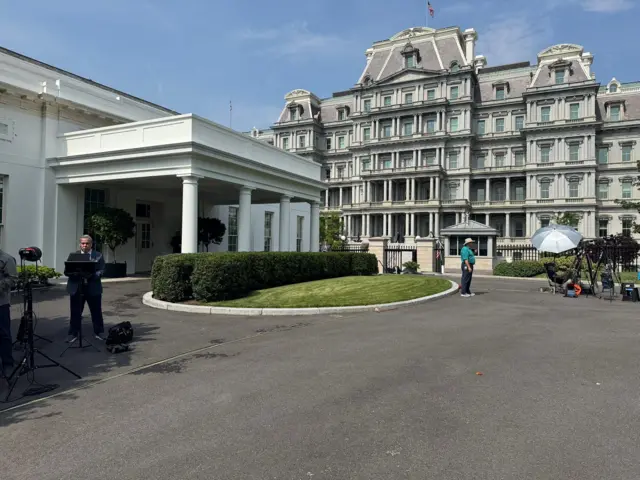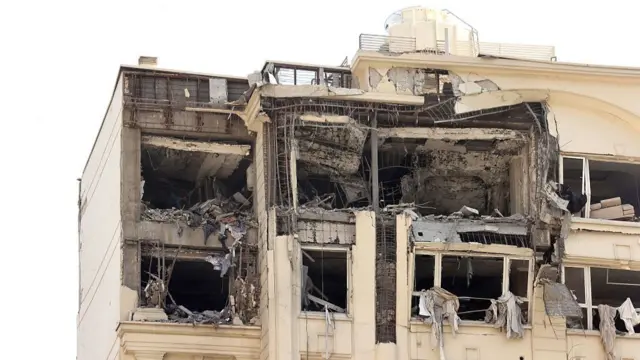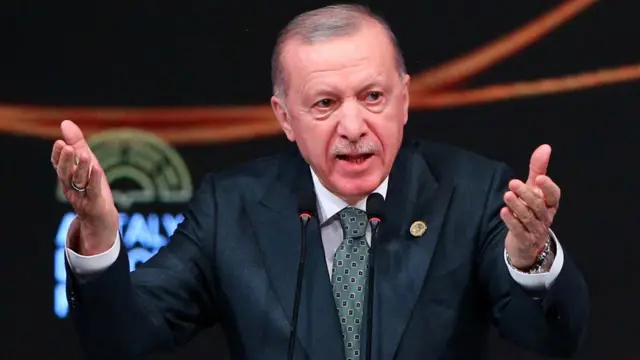Trump struggles with Iran message as Republicans diverge over attackpublished at 18:23 BST 13 June
 Anthony Zurcher
Anthony Zurcher
North America correspondent
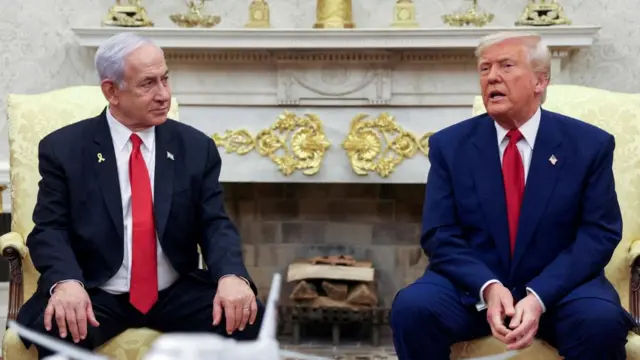 Image source, Reuters
Image source, ReutersAs the massive size and scope of Israel's overnight attacks on Iran have come into view on Friday, Donald Trump is presented with a major new foreign policy crisis - as well as a diplomatic dilemma.
How does the American president who promised to be a peacemaker handle a dramatic military escalation in the Middle East?
In the hours after the strike, Trump appears to be struggling to find a consistent message in the face of a grave blow to his diplomatic efforts.
Last night, US diplomats reacted coolly to the first reports of the Israeli strikes. While it was clear that American forces had advance notice of what was coming, a statement from Secretary of State Marco Rubio emphasised the US was not involved in the logistics or planning of the attack.
By Friday morning, the president himself was commenting on his Truth Social account, with a sombre message directed at the Iranian leadership - more "I told you so" than a clear plan to stop the warfare.
In comments to American media outlets, though, Trump's message was more muddled. "I think it's been excellent," he said of Israel's strikes in an ABC interview. He added that the US gave Iran a chance, but they didn't take it.
Trump's strategy, at the moment, appears to be hoping that the military action jolts Iran into making new concessions – a delicate dance of distancing the US from Israel's actions while still trying to use them to gain advantage at the negotiating table.
